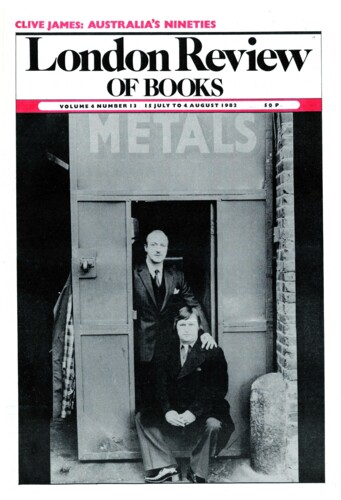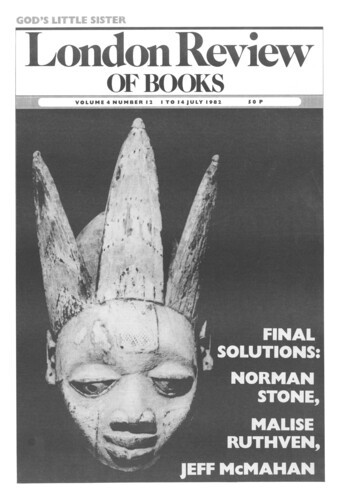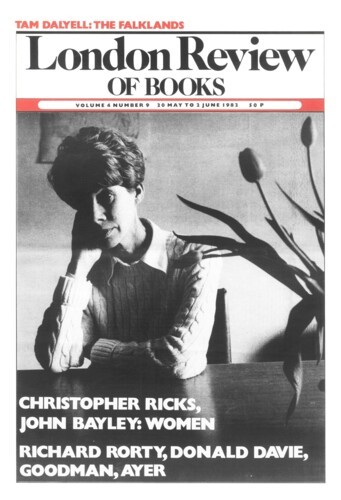A Flat in Neuilly
Douglas Johnson, 3 February 1983
In 1965 I spent several weeks working in the manuscript section of the Bibliothèque Nationale in Paris, reading documents which were relevant to the Dreyfus Affair. After I had returned to England I received a letter, sent to my university address, which told me that if, in any forthcoming book on Dreyfus, I wished to avoid the mistakes which had been made by so many previous historians, I would be well advised to call on the author. I saw that the writer of the letter had the same name as that of an officer who had played some part in the Affair, and I assumed she was his granddaughter. But how had she known that I was writing a book about Dreyfus? She gave no explanation and her short and cryptic letter was intriguing. Naturally I replied, and after a short correspondence I arranged to go to Paris and to call on her in her flat in Neuilly. This I did, one wintry afternoon. She led me into a darkened room and invited me to sit down in a wicker chair which, she told me, had been sat in by General Billot (who had been Minister for War during a crucial period of the Dreyfus case). By sitting in it, she said, I would know that I was now fully immersed in the Affair.




